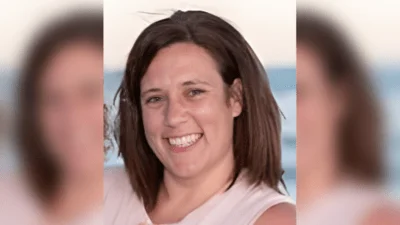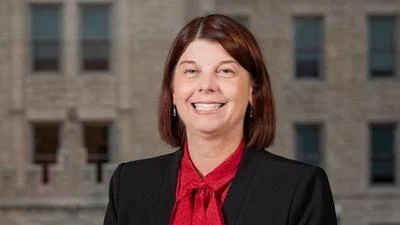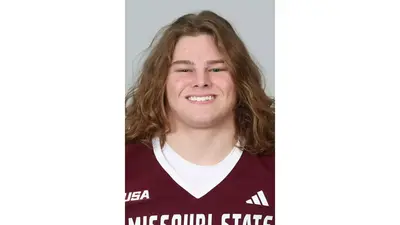DeKalb County Finance Committee met May 6.
Here is the minutes provided by the committee:
The Finance Committee of the DeKalb County Board met virtually via Zoom. Chairman Bagby called the meeting to order at 7:00 p.m. Those Members present were Mr. Scott Campbell, Mr. Steve Faivre, Mr. John Frieders, Ms. Dianne Leifheit, Mr. Jerry Osland, Ms. Linda Slabon, Chairman Tim Bagby, and Ex Officio Member Board Chairman Mark Pietrowski, Jr. A quorum was established with all Members virtually present.
Others present via Zoom included Gary Hanson, Pete Stefan, Derek Hiland, Christine Johnson, Doug Johnson, Rose Treml, Jim Scheffers, Greg Millburg, Paul Callighan, Cindy Carpenter, Derek Hiland, Mark Charvat, Sheila Santos, Jerry Smith, Paul Borek, and Roy Plote.
APPROVAL OF THE AGENDA
It was moved by Mr. Osland, seconded by Ms. Slabon and it was carried unanimously by voice vote to approve the agenda as presented.
APPROVAL OF THE MINUTES
It was moved by Mr. Campbell, seconded by Mr. Frieders and it was carried unanimously to approve the minutes of the March 4, 2020 Finance Committee Meeting.
PUBLIC COMMENTS
Mr. Paul Callighan commented that he was in support of the Property Tax Penalty Waiver Ordinance. Mr. Callighan is a member of the Kishwaukee United Way Board and they have been trying to provide a number of safety net opportunities for the public but individuals are still suffering due to the systems being overburdened. Although there are financial safety nets in place, most won’t be able to get back on their feet in a timely fashion and he would appreciate the Committee’s thoughtful consideration on the Ordinance before them later on the Agenda.
Mr. Mark Charvat shared that he agreed with a lot of what Mr. Callighan expressed. He continued that he did have some issues with the part of the plan regarding how interest and penalties would be calculated. As it stands right now, if an individual does not make their payment by the second installment, they would be responsible for the three month period as of the June 5th due date. He believes the easiest course of action would be to waive the late fees until after the second installment date. Mr. Charvat stated that there would be a lot of confusion amongst the constituents if that is not done. He also wanted to make sure that the Property Tax Penalty Waiver Ordinance Plan was available for every single tax payer in the County. Mr. Charvat encouraged the County Board to just delay the requirement of the first installment of property taxes until the second installment date.
PROPERTY TAX BILLS PENALTY WAIVER
DeKalb County Treasurer/Collector Christine Johnson shared that the conversation about property tax collection and property tax relief actually began among the Illinois County Treasurers during the month of March. At that point in time they thought that maybe the Legislature would go into session and may want to do something regarding property taxes. So the Illinois Counties Treasurer Association drafted a piece of legislation and procured a sponsor to prepare for the General Assembly going into session. Once it became apparent that the General Assembly was not going to go into session, their Lobbyist indicated that the Governor might be taking action on the topic. At the end of March, the Lobbyist contacted the Governor’s Office and offered to be a resource for him should he decide to address the property tax issue. Shortly thereafter, the Governor announced that he was not addressing the issue and said that it was a Local Government question. At that point in time Ms. Johnson began working with the DeKalb County State’s Attorney’s Office to draft a potential Ordinance that could be used by the County Board, should they wish to waive penalties. Ms. Johnson modeled the Ordinance from her previous experience with the individuals who were affected by the Fairdale Tornado (where the County waived the penalty on the first installment for 90 days as long as they paid the entire bill by the second installment due date) and also took a look at the draft Resolution that Kane County was looking at. The 90-day timeframe also mirrors the timeframe that is used by the State and Federal Governments for their extension of income tax collections.
Ms. Johnson shared that that the draft Ordinance before the Committee provides several things. It minimally disrupts the property tax collection and distribution cycle but more importantly, it provides some relief from the property tax penalties for those who are adversely financially affected by the global pandemic. Ms. Johnson’s original Ordinance did not require tax payers to complete any forms or applications. The State’s Attorney’s Office supported that and since the entire County has been declared a disaster area, she doesn’t believe it should be necessary for individuals to fill out additional paperwork for them to get the relief that the County would be offering them. Not requiring an application is still Ms. Johnson’s recommendation, she shared.
Ms. Johnson reported that property tax bills went in the mail on Friday, May 1, 2020, and three business days later the Treasurer’s Office already collected $1,755,000. Many individuals are already paying and many are paying both installments.
Mr. Faivre moved to forward the Draft Ordinance in Relation to the COVID-19 Health Emergency and the Tax Year 2019 (Payable 2020) Collection of Property Taxes in the County of DeKalb, Illinois to the full County Board recommending its approval. Mr. Osland seconded the motion.
Mr. Campbell made a motion to make the following amendment to the draft Ordinance. Ms. Slabon seconded the motion.
Proposed Amendment #1 to Ordinance O2020-xx
Modify Section II as follows (Changes in RED):
a. The penalty interest shall be postponed waived for the first installment of property taxes due June 5, 2020, for the 2019 taxable year (payable 2020) for those who pay the entirety the first installment of their property taxes owed on or before the September 3, 2020. due date for their second installment of property taxes.
b. Interest will accrue for those property taxes not paid upon the due date of the first installment of property taxes. However, such interest shall be waived if the taxpayer pays the full amount of all property taxes due for the 2019 taxable year (payable 2020) on or before the September 3, 2020 due date.
c. Failure to pay the first installment of 2019 tax year (payable 2020) property taxes by September 3, 2020, will result in full application of applicable interest penalties pursuant to the Property Tax Code, calculated from a starting date of September 3, 2020. which will be calculated retroactively to the June 5, 2020 due date.
Mr. Campbell explained that the Ordinance as written allows a taxpayer to pay their first installment of taxes that are due on June 5th as late as September 3rd (the second installment date) without an interest penalty. This would make both tax payments due on September 3rd. If a taxpayer fails to make that double sized payment by September 3rd, they are charged interest backdated to the original due date of June 5th. Mr. Campbell shared that he feels this cumulative interest penalty is adding insult to injury for the most impacted homeowners AND businesses in our community, and making it a little harder to catch up on those tax payments. His amendment moves the delinquent interest accrual start date to September 3rd for the first payment. Essentially, this moves the first payment AND the interest on that payment to September 3rd.
Board Chairman Pietrowski shared that he and Vice-Chair Frieders both discussed this potential amendment early on in the process and believe it would be a good idea to better help the County tax payers.
Chairman Bagby shared that given the amendment on the floor, he inquired to Ms. Johnson if she had a figure on the percentage of what a typical late payment situation looks like. Ms. Johnson shared that the first three months last year brought in $67,000 in penalty interest collected. The significant amount of penalties fees are collected in September (last year $122,000 was collected in September).
Mr. Faivre asked Ms. Johnson if she had any idea what the cash flow impact would be. Ms. Johnson shared that there are three large tax paying agencies that pay for numerous individual mortgage companies. Just those three big tax paying agencies pay about 35% of the taxes every year. In addition to those, there are probably another 100 mortgage companies who don’t use those tax paying agencies who pay individually. Ms. Johnson guessed about 40% of property taxes are escrowed through mortgages.
Mr. Bagby called for a voice vote on Mr. Campbell’s Amendment #1. The motion carried unanimously.
Mr. Campbell made a motion to make the following second amendment to the draft Ordinance. Mr. Faivre seconded the motion.
Proposed Amendment #2 to Ordinance O2020-xx
Modify Section II as follows (Changes in RED):
d. The DeKalb County Board has determined that this waiver will be available to property owners who certify that they are experiencing financial hardship due to COVID‐19, resulting from medical bills, being unemployed or under employed, business closure, or other negative impacts to income. Property owners seeking this waiver of interest penalties must complete a form (attached) attesting to current or potential financial need for this waiver. This form must be submitted with any payment made after June 5, 2020.
The form will contain the following section:
By submitting this form, you are acknowledging that you are having or anticipate having financial hardship due to the COVID-19 outbreak in DeKalb County. Penalty interest on the first installment of property tax will be waived if paid in full by the second installment date of September 3, 2020. You further acknowledge that deferring your first property tax payment may negatively impact the ability of school districts and other taxing bodies to meet their financial obligations. While this waiver is available to all property taxpayers in DeKalb County, the DeKalb County Government requests that only those with current or anticipated financial need take advantage of this waiver.
This form must be submitted with any payment made after June 5, 2020 to the DeKalb County Treasurer/Collector to receive a waiver of the interest penalty on the late payment of your first installment of property tax.
Your second installment of property taxes will remain due on September 3, 2020, and any interest penalty for late payment will accrue on the balance due from that date.
Mr. Frieders shared that he and Chairman Pietrowski discussed this item for a long time. Having a form is something that he and the Board Chair feel very strongly about that is needed. The form warns that late payments can impact taxing bodies and Mr. Frieders hoped that way people who don’t need the help won’t pay late. They also don’t want to be judgmental and put anyone in a position to have to judge on this and turn anyone down. The objective of the form is not to turn anyone down.
The Committee discussed their positions on the need or desire to have individual fill out and sign a form.
Ms. Johnson explained that the Treasurer’s Office is not required by law to do a tax distribution until 30 after the first installment due date. It has always been Ms. Johnson’s practice to do two tax distributions before she is even required to do the first one. She still anticipates on doing that this year as well. The three large tax paying agencies, described earlier, have all assured that they will pay at the same time they always have. That is where a majority of where the first two tax distributions will come from.
With suggestions from the Committee Mr. Campbell reworked the amendment slightly and Mr. Faivre accepted the friendly amendments.
Chairman Bagby called for roll call vote on Mr. Campbell’s Amendment #2. Those Members voting yea were Mr. Campbell, Mr. Faivre, Mr. Frieders, Ms. Leifheit, Mr. Osland, Mr. Pietrowski, and Ms. Slabon. Chairman Bagby opposed. The motion carried.
Chairman Bagby called for a roll call vote on the main motion now as amended. Those Members voting yea were Mr. Campbell, Mr. Faivre, Mr. Frieders, Ms. Leifheit, Mr. Osland, Mr. Pietrowski, Ms. Slabon, and Chairman Bagby. The motion carried unanimously to forward the amended Ordinance to the full County Board recommending its approval.
ADDING LOAN OPTIONS TO EMPLOYEE 457 PLANS
Mr. Stefan explained that the new Coronavirus Aid, Relief, and Economic Security (CARES) Act contains provisions to allow for more favorable tax treatments of 457(b) Plan (i.e. Deferred compensation plan) distributions and loans for qualified participants who experience adverse financial consequences due to COVID-19 related issues. Neither of the County’s 457(b) Plans currently allow for loans. Mr. Stefan proposed to add that provision in the event that an employee needs access to their funds.
It was clarified that allowing this has no negative effects or financial risks for the County because the money being loaned is employee’s money. This would also be a permanent option for employees in the future. The Committee was all in favor of adding loan options to employee 457 Plans.
COVID-19 IMPACT ON COUNTY FINANCES
Mr. Stefan reviewed a spreadsheet that he provided to the Committee that provided some financial projections on the possible budget impact caused by the shuttering of businesses during the COVID-19 pandemic. He added that hard numbers are in yet but a U of I study and guidance from the state’s Office of Management and Budget and the Illinois Municipal League are predicting a 15% drop in sales tax revenue. That would be a $400,000 loss for the County. Other revenues that are expected to be impacted include sale-tax sharing with the City of DeKalb, personal and corporate income tax and fee revenues.
In total, Mr. Stefan projected the County’s Genoa Fund could take a $2 million hit this fiscal year, while motor fuel tax revenue could be down $320,000. He also shared that some of these will certainly impact the FY 2021 Budget as well. With all the unemployment, income tax is going to go down and corporate income tax will go down. He added that there was no way of knowing how long it will take sales tax to bounce back.
The Committee requested to keep this Agenda Item as an ongoing item to keep the Committee informed on the changes that may occur with the Budget as more is known.
Board Chair Pietrowski mentioned that the County has an Emergency Budget Plan (Contingency Plan for Loss for Major Revenue Sources) that was done in 2015 when they identified $2.6 million in expenditure cuts or revenue enhancements in the event of the loss a major revenue source. At that time it was the Airline Fuel Sales Tax. Mr. Pietrowski expressed that it may be time to get that Plan back out to review and update for the County’s potential current budget situation.
Mr. Hanson shared that he thinks one of the messages that should come from the reviewed spreadsheet is that is it really early to be making major budget decisions. He was not saying that everyone shouldn’t be concerned but the projections are based on he wasn’t sure what, because the sales tax lags for everyone. He added that his is hesitant to jump too quickly to believe the sky is falling. It will be important to watch these trends. He will be reviewed the County’s Contingency Budget Plan.
Chairman Bagby inquired if the County still had a hiring freeze in place. Mr. Hanson reminded the Committee that in the County Code there are Board rules in place on Filling Department Staff Vacancies under Section 2-88.
NURSING HOME BONDS PARAMETERS ORDINANCE
Mr. Stefan shared that this is a tentative future item regarding the Nursing Home Expansion bond issue. Depending on the results of a debt service coverage report and the preparation of a draft Ordinance, a parameters Ordinance may be recommended whereby the authority to sell the bonds is delegated to an individual(s) so that when an opportunity presents itself in the bond market to complete the bond sale at terms favorable to the County that are within the parameters defined in the Ordinance, the sale could be accomplished in a more timely fashion than waiting for the next County Board Meeting or holding a Special Meeting which may be after the selling opportunity has already come and gone.
TORT FUND REVENUES ACTUARIAL STUDY
Mr. Hanson referred the Committee to two summary spreadsheets. He added that this goes back to an issue that surfaced last year when the Committee was talking about the Tort Fund and where the County was spending the money and whether they were spending it too quickly. There was also a question if the Tort Fund Reserves are big enough. An Actuarial Study was recently done on the County’s Tort Fund to answer two questions: Is the County funding the Tort Fund annual at the right level and is there an appropriate amount of Tort Fund Reserves? The Actuarial Study was sent out to the Committee prior to the meeting to review.
The first spreadsheet that was reviewed broke down into three different confidence levels (50%, 75%, 95%) on whether the County is funding the Tort Fund adequately. The second spreadsheet reviewed the Tort Fund’s Reserves and it down in the same three confidence levels.
No decisions were needed to be made by the Committee at this time but Mr. Hanson shared that he would feel the most comfortable with the 75% confidence level for Funding and 95% plus possibly 25% more on the Reserve Goal.
COURTHOUSE FUNDING RESOLUTION
Mr. Hanson reviewed that the draft Resolution before the Committee would be authorizing the expenditure of funds for the Courthouse Expansion Project beyond the initial allocation of $70,000 for architectural services that was authorized in FY 2019.
The Law & Justice Committee has been reviewing the project. The design layout has been developed and embraced by the various offices which would (a) locate the State’s Attorney’s Office in the third floor space set-aside for expansion; (b) located in the State’s Attorney’s current office space on the first floor of the Courthouse would be the Public Defender’s Office; and (c) located in the current Public Defender’s office in the basement of the expanded Courthouse would be both the Treatment Court and Pre-Trial offices.
The architect is now finished and it is in the County’s hands to review prior to going out for bid. In an anticipation of that being done, the Finance Committee now needs to line up the money for the project. That is what the proposed Resolution would do. Right now the project is being projected to cost $1,700,000. That is a guess until the project goes out to bid, especially now during the pandemic.
The financing plan which is estimated to cost around $1,700,000, including the architect fees already approved, would be managed by the DeKalb County Public Building Commission with the funding for this project to come from three sources: (a) $686,000 from monies received from the City of DeKalb from the close-out of their 23 year Tax Increment Financing District #2, (b) $411,000 from a one-time generation of revenue which came about because of the change in timing of when sales tax revenues are disbursed to the County from the City of DeKalb under the sales tax revenue sharing agreement, and (c) $603,000 from the County’s Opportunity Fund.
Because of the current pandemic and uncertainty of the County’s future budget status, Mr. Campbell suggested that the Finance Committee hold off on going forward with this project until their August Meeting. He hoped by then they may have a better idea of how the COVID-19 pandemic may affect their budget. Mr. Campbell additionally suggested that the three funding sources continue to be earmarked for the Courthouse Expansion Project but just not allocated yet. The Committee agreed with Mr. Campbell’s suggestions.
CLAIMS REVIEW
Mr. Stefan offered to highlight any significant expenditures included in the last couple of month’s Claims List including any items that were unusual from either a dollar amount perspective or due to the nature of the expenditure. The Committee did not have any questions.
ADJOURNMENT
It was moved by Mr. Campbell, seconded by Mr. Frieders, and it was carried unanimously to adjourn the meeting at 8:43 p.m.
https://dekalbcounty.org/wp-content/uploads/2020/05/min20-finmay.pdf






 Alerts Sign-up
Alerts Sign-up